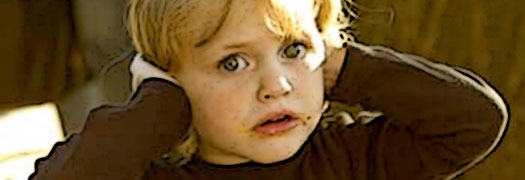
Features | Lists
By The Staff
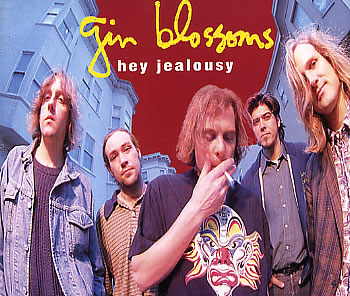
Gin Blossoms
"Hey Jealousy"
(Fontana; 1992)
The other day I was at the Taste of Chicago—Chicagoans, it was my lunch break, I had free tickets, I’m sorry—and the discussion of rib cook-off bands was raised. (The Taste of Chicago is perhaps the world’s largest and therefore fuckawfullest rib cook-off.) I have seen Foghat at a rib cook-off, and the band Tonic; someone raised the specter of the Gin Blossoms in this context, and the group laughed, to which I tartly responded, “You shut the fuck up about the Gin Blossoms,” to which the group of people I was with responded by changing the subject.
My love for the Gin Blossoms isn’t based on my extraordinary logic or taste, as is everything else I do including toothpaste shopping (Sensodyne). It’s also not based on me owning a copy of the Gin Blossoms’ New Miserable Experience at a really early age in life and loving the fuck out of it, though it’s certainly true that I did. (I also loved Seal at the time, a habit I’ve since purged.) No, my love of the Gin Blossoms is based on a confluence of all of the above: When I was in fourth grade, I possessed the clear logic and taste to discern the pop songcraft of the Gin Blossoms as something savory, and I foresaw a time in which they would be looked upon as grunge also-rans of sub-Seven Mary Three legitimacy, and so I ingested the album New Miserable Experience whole and incorporated it into my sonic makeup. Thus, when I hear “Hey Jealousy,” neurons fire along clusters reminiscent of those that fire when I sit to eat a meal with my family, or when I play with puppies, or when I unlocked Luigi in Super Mario Galaxy one time and then ate a steak. And it’s because, when I hear “Hey Jealousy,” in all its shit-for-brains hopefulness, I realize that I am the only person on the entire planet smart enough to truly like it, and that everybody else is a cocksucker.
Yes: you are all cocksuckers at a rib cook-off, exchanging tickets for flat Bud Lime and singing along ironically to whatever band is playing. And while you’re singing along, drunk on Bud Lime, barbecue sauce stains in the corners of your fat stupid mouth, you will fist pump the first five notes and sing along with the opening couplet as though it were any other song your brain happened to leak diarrhea-like to your lips, ignoring entirely the quiver and vulnerability of Robin Wilson’s vocal performance. You will neglect the plaintive urgency of the chorus, the sunburned wistfulness of the guitar solo; you will sing along because you are a drunk, stupid fool, and then you will go buy more tickets and more elephant ears for all your fat stupid friends.
This list is for you, cattle.
Clayton Purdom
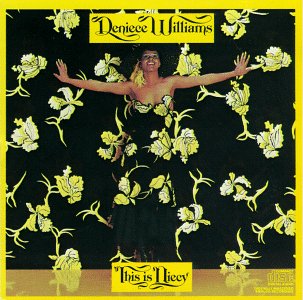
Deneice Williams
"Free"
(Columbia; 1977)
I have a firm belief that every artist has got it in themselves to release one good song. With some, it takes a little bit of digging. But, somewhere, hidden in their spurious canon of musical misfires, there lies a gem. Then again, some may counter that in a mound of steaming horseshit even a plastic bead can shine like a diamond. What’s worse is when artists are SO associated with one song that it acts almost as a deterrent to the rest of their catalog. So it is with Deneice Williams. Aside from a slew of sub-standard disco covers and not-so-original originals and ill-advised duets with Johnny fucking Mathis, Deniece Williams’ biggest musical crime is that heinous stalwart of drunken hen-nights and god-awful ’80s rom-coms “Let’s Hear It for the Boy.”
Everything about that song is loathsome. From its over-bubbly bass line to its cynical attempt to encourage a spontaneous singsong with its multi-tracked “woah-oh-oh-oh”s before the chorus there are fewer songs more likely to trigger off a violent reaction from me—for your own safety the others are “Downtown” by Petula Clark and “Pure Morning” by Placebo. From this awful history it would seem that Williams would have nothing worth offering to the world. Then there’s “Free.” Released in 1977, “Free” demonstrates why she was selected by Stevie Wonder as a backing singer alongside the unconquerable Minnie Ripperton.
A breezy sparkling epic, it begins with the gentlest of chimes, like a minted kiss on a warm August morning while her astounding crystalline voice launches into full scale seduction “Whispering in his ear/my magic potion for love….” But, unlike Minnie Ripperton’s salacious “Inside My Love” or Donna Summer’s pornographic “Love to Love You Baby,” “Free” plays for your affections with subtlety, warmth and , surprisingly, with no strings attached—“lets not waste ecstasy, because I’ll only be here for a while, I got to be free.” And it is that twist which allows Williams’s voice to climb forever heavenwards, simultaneously in orgasmic release and in expressing the contentment that only comes from true freedom. Perfectly offset by golden major sevenths on wah-wah, chilled jazzy Rhodes and a tiptoe bass line (played by Earth, Wind & Fire), “Free” is the perfect soundtrack to passionate Saturday nights and the reflective Sunday mornings. Let’s hear it for Deniece.
Danny Roca
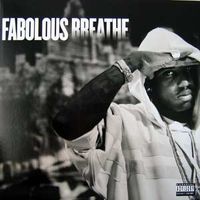
Fabolous
"Breathe"
(Atlantic; 2004)
Like rap’s equivalent of M. Night, Fabolous is direly corny. That’s not the problem, though. One problem is that Fabolous mistakenly thinks he’s really cool, his hat always tipped at the most impractical angles and his hands always gesturing in ways that I’m sure he thinks are the coolest hand gestures this side of David Copperfield. Another problem is that Fabolous just isn’t very good at rapping. The current test of a rapper’s measure is “A Milli” remixes and on that count everybody’s out-rapping Fab’s take. Including Lil’ Mama.
What’s great about “Breathe,” though, is how Just Blaze takes Fab’s corny direness and amplifies it with a glorious beat into the realm of the giddily epic; the sample of the shouted title fills the spots where Fab takes his breaths in the flow, creating the illusion that the bum’s actually got good breath control. It’s a gimmick the brilliance of which elevates it beyond gimmick. The hook equals instructions to breathe, Just Blaze minimizing the beat in an unexpected inhale of its own under Fab’s silly self-CPR (“1 and then the 2 / 2 and then the 3…”) and choking gasps until once again those lung-crunching drums and trilling key lines kick back out with Fab’s panting verses, where he forgets to act cool and by the time he gets to “I see them on the block when I pass-es / Lookin’ like they need oxygen mask-es,” even forgets to rap like a mediocre rapper. This song’s the sound of an emcee getting swept away by a beat that’s bigger than he is, riding a wave and trying to keep his head above water, his mind consumed with the action of his still heaving chest and his mouth spitting out the same inspiration that threatens to drown him. Fab’s next big hit was the sound of “featuring Ne-Yo.”
Chet Betz
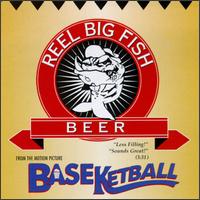
Reel Big Fish
"Beer"
(Mojo/Jive; 1995)
Think “shitty” as in “really fucking drunk”: wet, sloppy, should have had a wingman, possibly racist. Reel Big Fish are a very shitty band. They espouse shitty mantras, how “Everything Sucks” and how my girlfriend should be their girlfriend, too. They wear shitty clothes and groom themselves in shitty ways. Perhaps most plangent, they sound shitty—not only does most of their brass seem as shallow and rusty as if it had been recently vomited through, but their skater/middle-aged lush paradigm of ska-punk is really only valid in that wonderful twilight hour before vomiting, when the world seems at one’s fingertips and any dumb melody intrinsic to the very fabric of energy cloaking the room.
“Beer” is that hour paramount, that pulsing bliss eternal; one feeling splayed into a billion alternate realities, existing at once, infinitely in two dimensions; one band uttered at once, their entire cellular makeup pitched in perfect crystal, myriad colors not one inkling soured. If “Beer” were liquid I would chug it and then try to flip the cup upside down so you are allowed to chug as well. I would throw a ping pong ball into its very core so that you may taste. I would fling a token of currency into its bosom so that you can sample sweat in its folds. And these games would happen in synergy, forever. And this is what Reel Big Fish have created amidst all their blathering—one sharp, blast of doodoo, right in the kisser, as if their career were just a passion of stupidity before penning something stupidly transcendent. “Beer” is alchemy and “Beer” is a big fart of wasted ambition. And if “Beer” were a song written by a real band, I would take that band out for a night and hate myself in the morning.
Dom Sinacola
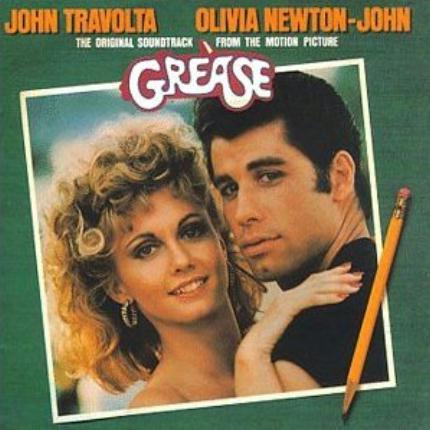
Olivia-Newton John
"Hopelessly Devoted to You"
(RSO/Polydor; 1978)
I lurve Xanadu, of course, but it’s not like you could really make an argument that the music is fabulous or anything. “Magic” can bite me, and post-film hit “Physical” bores me to tears. This song, however, with its Patsy Cline guitar work, is fucking gorgeous, and easily the best thing on the Grease soundtrack, making this track suitable for a Good Songs in Shitty Musicals too.
Plus, since the band that would become Toto played on this and “Physical” and Toto albums this whole thing is a clusterfuck of musicians who were trying to look forward banging it out on a track that looked backward (yes, this is even better than “Rosanna”). But so anyway Sandra Dee is trying to work out her obsessions on the backyard, as you do in musicals, sneaking out of the Pink Ladies’ slumber party to be lame, but awesomely so, in range-reaving scale form, all while leaning her light-green ribboned head against any lattice or banister she can find. She is distraught, is what I’m saying, and when Danny Zuko appears in the fucking kiddie pool? You can’t plan this kind of brilliance, is all I’m saying.
Mark Abraham
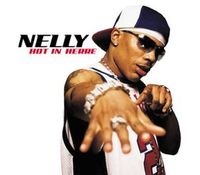
Nelly
"Hot in Herre"
(Universal; 2002)
I have this theory that the Neptunes proclaim their mastery of pop and defeat you by using you to create a better version of you. Think about it: what better way to show up Nelly than to create a Nelly song that’s leagues better than any other Nelly song, thus placing the flaws of his entire catalogue in stark relief? And how sweet the irony that they’re actually able to enlist Nelly—unknowing all the while—to mug and smarm all over his own diss track. He gets the money and the prestige, but the Neptunes get the vastly superior knowledge that they’re the secret orchestrators of the entire spectacle.
The attentive among us know this. We know the frog-throated chords off the top introduce not Nelly but the full 17 seconds of funky mocha-fudge that reign while Nelly says nothing of importance. By the time the verse hits, we’re hooked. Ever the tomcat, Nelly’s first line is—and, for the first time, really notice this—“I was like, good gracious ass is bodacious.” In an attempt to rival the slinking cougar beat (as futile as Cuchulainn’s battle with the sea), Nelly signals to all present that this is a song about, like, gettin’ some. It gets more hilarious from there: the listener slowly realizes that Nelly manages to say nothing and be gross at the same time, which is amazing. Moments like the indomitable “I’m just kiddin like Jason (Oh) / Unless you gon’ do it” don’t just happen, they’re inspired. The beat is so wild, so sexy that Nels has to be bigger than ever: he has to stretch that preposterous band-aid so wide that it starts wearing him. The Neptunes coax Nelly to the extreme of his persona, placing him in the same netherworld between disgusting and hilarious that endears R. Kelly to us all.
Pharell and Chad are not content just to enlist your faults against you; they’ll marshall your strengths too. Say what you want about Nelly: dude’s got a charismatic whine and a gift for hitting the rhythm of a line (tangent: this is what makes him so much more tolerable in a guest spot). “Hot In Herre” is peppered by so many idiotically catchy lines that the verses barely register: what sticks in your craw is “mix a little bit a (ah, ah)” and “let it hang alllll out!” The Neptunes take that too. They take everything.
What remains is nothing but a band-aid the size of Saskatchewan. There is no Nelly—only “Nelly,” or more precisely, “The Neptunes present Nelly.” He’s that guy from “Hot In Herre,” a song so gloriously shitty, so infuriatingly captivating it deserved to make Nelly a household name in spite of himself.
David Ritter
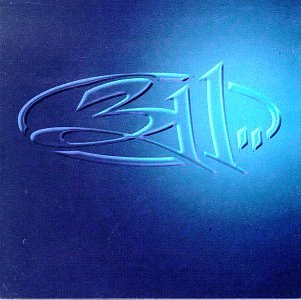
311
"All Mixed Up"
(Capricorn/Volcano; 1995)
Give 311 credit; they repped Omaha, Nebraska long before the pasty-faced Saddle Creek crew and have actually hung around long enough that they’re touring outdoor sheds with Snoop Dogg this summer, a concert circuit that will be as notable for the abundance of ganja as the sheer number of beer pong tables in the parking lot.
Peddling a questionable hybrid of rock, rap n’ reggae that ruled the buzz bin in the late ’90s, 311 were the ideal band for the thinking frat boy, equally useful for rocking both the kegger and the budoir whenever Legend (1984) failed to suffice as proper fuck music. 311 were easily the most popular, if not the most technically adept (Shootyz Groove) nor outright fun (2 Skinnee J’s), of the ’90s rap-rock acts to preach positivity as opposed to angst, and a tiny handful of their singles legitimately bang.
“All Mixed Up” is one of these, an effortlessly funky “hip-hop record” that’s the most palatable thing these dudes have placed on wax. Every one of their cheeseball tendencies are on full display, namely clean chickenscratch guitar licks giving way to the distortion pedal at the chorus, front guy Nick Hexum’s faux rude boy monotone, and uplifting messages imploring the listener to “trust your instincts / and let go of regrets.” But the groove forces the head to nod, and say nothing of the amazing bridge, where the first portion of Hexum’s “keep me coming / that is a girl that will kill them stunning” sounds exactly like “E.E. Cummings.”
311 have never paid much attention to critical broadsides (“fuck the naysayers ‘cuz they don’t mean a thing”), but even the most curmudgeonly of proper music fans will be forced to admit that “All Mixed Up” rules. And if you’re still filled with far too much darkness to appreciate their jam band-lite, reggae lilt, 311 have something to say to you in “Misdirected Hostility,” a track on the album from which “All Mixed Up” calls home:
“You should take a cue from the man Frank Black / play some pachinko / play some parchesi / ‘cuz all this angst shit is just cheesy!”
David M. Goldstein
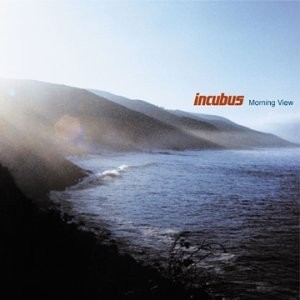
Incubus
"Aqueous Transmission"
(Epic/Immortal; 2001)
Screw you Incubus. At least Linkin Park have an excuse: they have no talent. Incubus’ eclecticism always suggested they could do whatever they wanted, they just happened to squander it on alt-rock bullshit. Blame it on bad taste: Vocalist Brandon Boyd describes his intentions with “Aqueous Transmission” were to make the listener “doze off into a land of rivers, kung fu, and unicorns” and “eventually pee in her/his pants.” Um…gross.
The obvious draw of the track is the pipa, a Chinese instrument whose riff is milked for all its worth. With good reason too: they might have just stumbled across it and wrote this song, but they seem to pick up on its natural melodies. Best of all, Boyd manages to wrap a perfect melody around it: when he sings “Further down the river” and bends his voice around an Eastern scale at the end it’s sublime, not just because he shows a genuine understanding of the music he’s paying homage to, but also because he doesn’t try to overdo it. Well, the last minute with just the sound of frogs croaking might be overdoing it.
And yeah, the band doesn’t deserve to have written a song this good, and yeah it’s stoner bait, but not even Incubus themselves could stop how well it works: it’s like they were shooting for something resembling trip-hop or the Tea Party and accidentally stumbled upon a Beatles song. The imagery of floating blissfully down the river is somewhat telling though: Incubus were just tourists passing through this paradise.
Joel Elliott
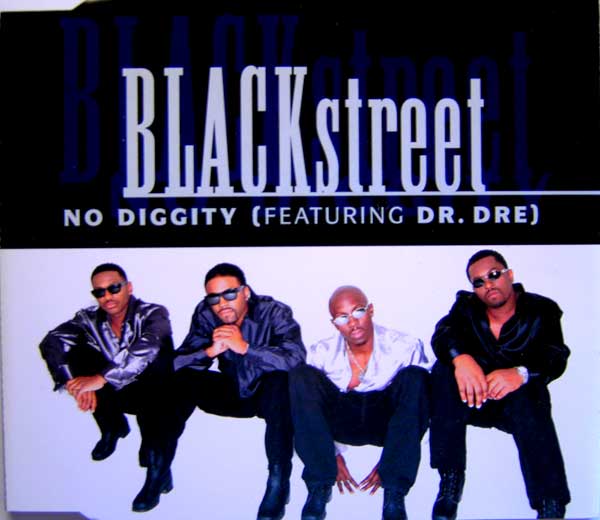
Blackstreet
No Diggity
(Interscope; 1996)
I’m currently browsing ebay for a time machine just to see the unbridled glee on my six-year-old self’s face when I tell him he will be writing a blurb about his favorite song in twelve years (though he’ll be disappointed to know the whole facial hair thing is sadly still a work in progress). I’ve unknowingly been training for this moment for a decade-plus, and my Ninja Turtles-watching former self desperately needs the vindication from being picked on for not having seen Beavis and Butthead.
You don’t have to know any of the words to “No Diggity” to enjoy it, nor do you really even need to know any of the group members’ names (Mikey something?). No, my friend, you’ve hit the lazy listening jackpot. Just break out the Bourbon, don those shades that look cool despite making you look like a total tool, and revel in the glory of Teddy Riley’s impossibly smooth cocktail of lazy keys and a vocal harmony that sounds precisely like pure satisfaction. To Blackstreet’s credit, despite the fact that they are, in wake of this groove’s momentum, entirely superfluous, they do an impeccable impersonation of really cool guys (or New Edition, if you prefer) for about four minutes, tossing in some velvety baritones to comment upon while nodding your head. And Dre’s verse is pretty alright, I guess. The only hiccup is Queen Bee’s shrill sentiments at the track’s conclusion, but such a minor disruption is negligible.
A testament to the track’s morphine-like effect: I’ve had this on repeat for the past thirty minutes while typing this, and I can no longer remember my name (Mikey something?). Yeah, it’s that good.
Colin McGowan
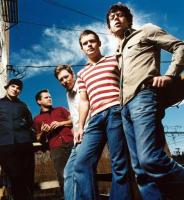
The Get Up Kids
"Campfire Kansas"
(Vagrant; 2002)
Wherein dopey emo, uh, dopes quit pushing the quiet nobility of cross-country running and the sanctity of electric guitar climaxes and, like, crying about shit and turn the –fi way lo- and write a song closer to good nostalgic Neil Young than bad nostalgic Sunny Day Real Estate, amber-hued piano accents falling palely atop what is, really!, a nice chord progression (really!). Also, wherein lyrics about laying in rafts and smoking cigarettes and water being bitter-cold (you get the idea) congeal without a hint of artistry but all the worn authenticity of a page from a journal discovered beneath a pile of leaves, water-logged and edges crumpled. If you found a page like that you would stand alone in the world and think, “God! What a remarkable thing to find.” Unlike the volumes of the genre from which it was pulled, here is a song that sounds like it meant something to the people singing it.





